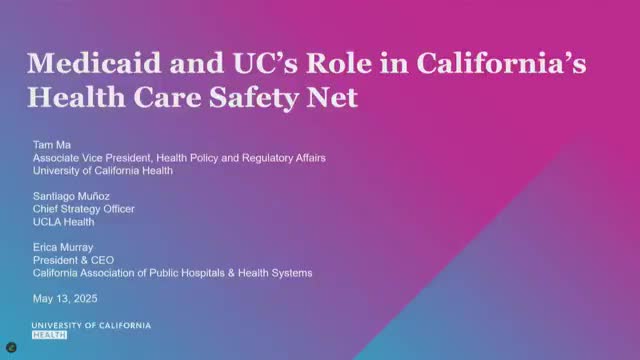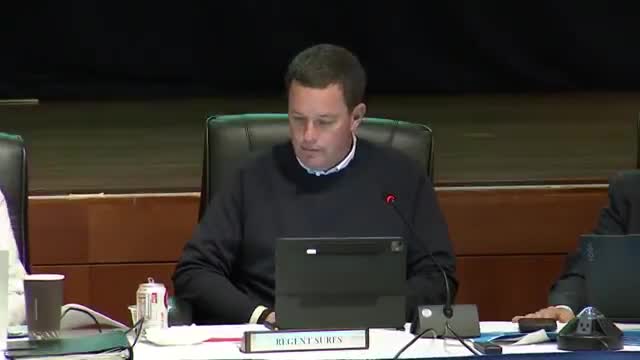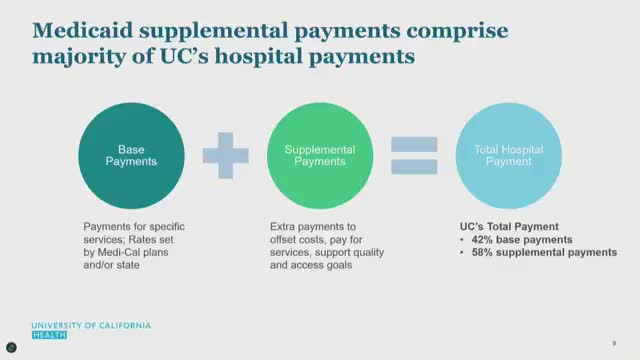Article not found
This article is no longer available. But don't worry—we've gathered other articles that discuss the same topic.

UC leaders warn congressional reconciliation proposals could put Medi‑Cal funding and supplemental payments at risk

UCHealth officials explain 340B drug program and warn proposed federal changes could threaten about $1 billion in savings

